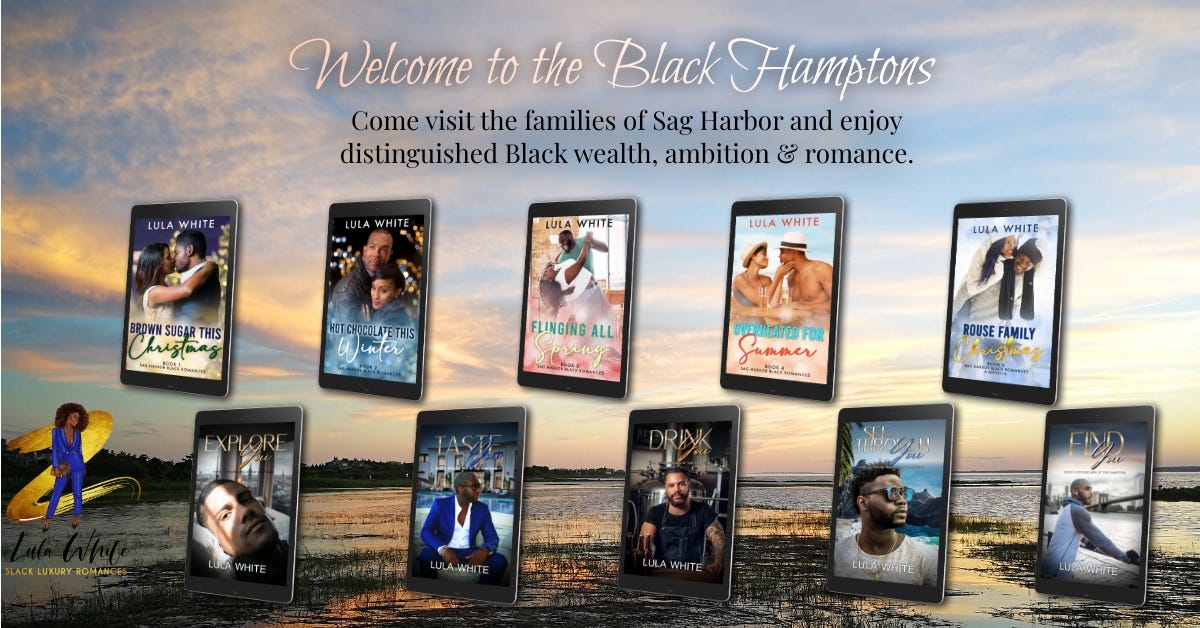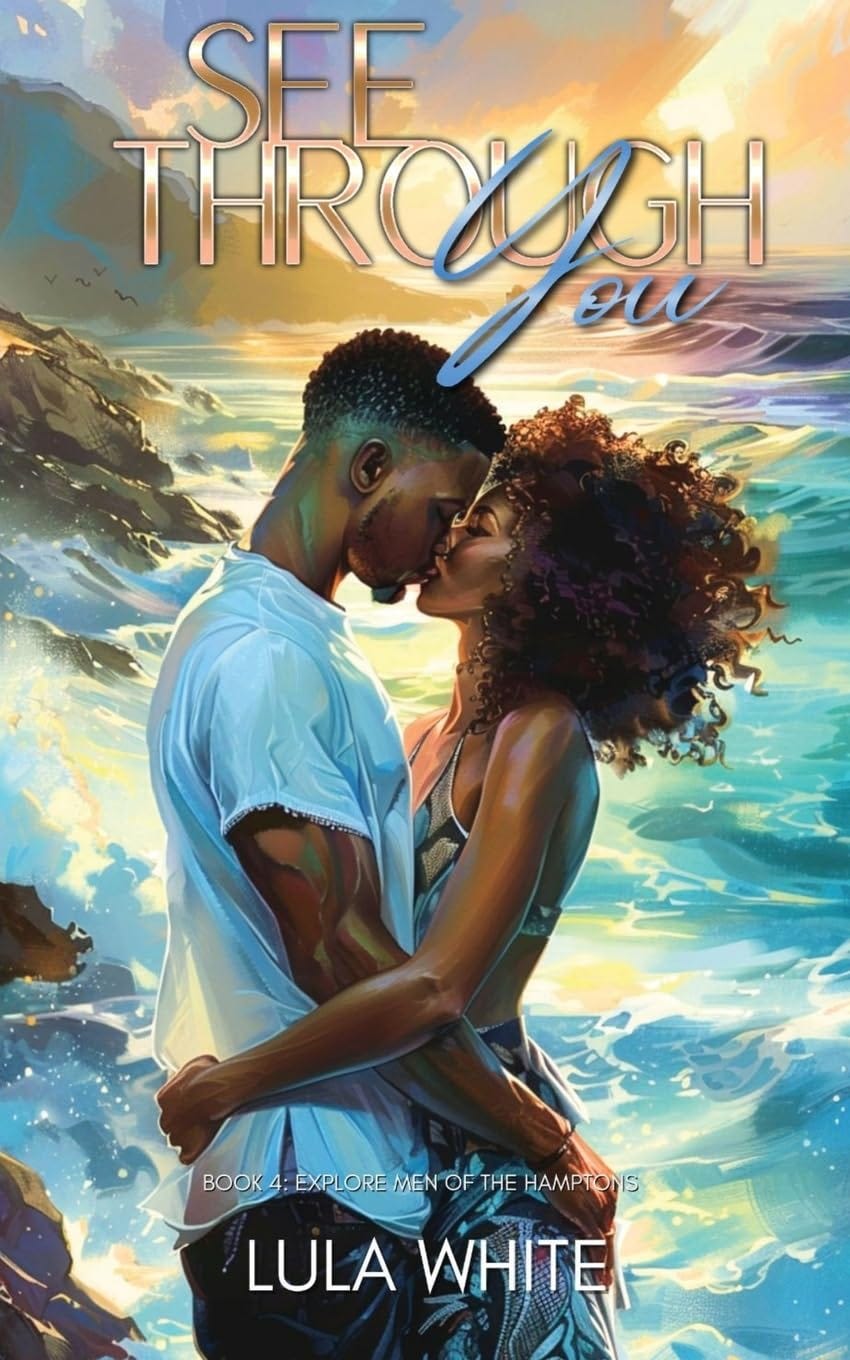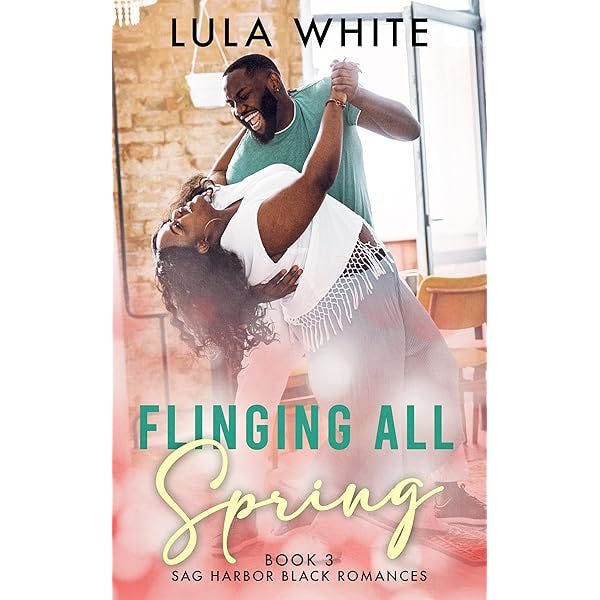Welcome to The Creative Council, where I interview creatives about their lives and work and the ups and downs of being a creative soul.
Today’s interviewee is Lula White!
Lula White is the pen name for Shannon Humphrey, slayer of words, goer of beaches, baker of chicken, fish, and too much sugar. Lula is an attorney who was born and raised in Arkansas and now lives in Southern California. She loves foreign countries, cabins in the woods, sunsets on lakes, and dinners overlooking water. Writing has been her life since childhood, earning her scholarships through college, a residency at prestigious Hedgebrook, and several appellate reversals at the California Court of Appeals. Now she weaves her love of history, culture, and community into twisty, emotionally charged plots, seasoned with spicy tension. Her stories are for every person who wants their heaven on Earth now, and believe they are more than deserving.
The Interview
Lula! Welcome! I’m very excited for this, so let’s jump right in.
· When did you start creating? Do you remember what pulled you in?
I’ve been writing my entire life and I can’t remember a time I wasn’t creating. I made homemade journals starting in second or third grade until my mom discovered one and she bought me one in fourth grade for my birthday. Writing and expressing has always been a lifeline as a weird girl who was fiercely independent and a nonconformist. I needed some place to put all the big dreams and passion. I wanted to be Oprah Winfrey and Janet Jackson and Whitney Houston and Madonna, because they were all super talented and living from a space of giving the world their gift. I wanted that, but I never felt comfortable saying it out loud, so writing was the place of big dreams.
· When did you start pursuing your current craft for real? As in, when did you begin to take yourself seriously as a creator?
Even as a kid, I always took myself seriously as a creator. My dream was to be an actress, filmmaker, dancer, and writer. At seventeen, I was accepted to Arkansas Governor’s School for Drama where I wrote a powerful dramatic monologue about a slave that had come back to life to give everyone a message. I think my character’s name was ‘Old Cissy Brown’. My grandmother and mother drove out to see me perform it, and I think that was the first time they truly saw what I could do creatively. They had seen my speeches and stuff, but this performance took my gift to a higher level and they saw that.
Less than a year later, I was a senior in high school with no way to pay for college. I was selected as a finalist in the Arkansas Martin Luther King, Jr., Commission’s Young Achiever of the Year competition. Semifinals were based on interviews and grades, but the very last phase for the finals was based on talent, evening attire, and an onstage question.
I dusted off ‘Old Cissy Brown’ for this. I wore a ripped-up skirt and flannel that I’d dusted up in my yard, and I also threw in a stepping dance sequence. My mother said when I was on stage performing and I beat my chest and legs really hard in my dance, a cloud of dust flew all around me like I had truly danced my way up from the earth. She said people in the audience were crying. I won that night, and all of my tuition was paid to any college in Arkansas of my choice.
My art has always been my lifeline. Always. Even during times I tried to not take it so seriously, I took it seriously, lol.
· Are you still having fun? If yes, how are you making sure it stays fun?
Absolutely. I only write what I want to say, what inspires me, what loves on my heart. I don’t force a story. Readers can definitely tell when we are doing it. It feels fake or contrived, sticking elements into a story just to score points – be it extra intimacy scenes, ethnic characters, gender-focused situations, for the sake of ticking off boxes and not because we care.
These days, in the social media era, there’s a lot of pressure on authors and creators to write for the readers and not for ourselves. We’re creating more to satisfy an algorithm and not from a space of having a right to exist. The retailers are all too happy to have us putting out content made purely for profit so we keep making them money – very little substance but lots of instant, unhealthy gratification.
That’s not fun to me. Just like working for ‘the man’ is not fun for me. When I felt myself questioning if I should do it, I pulled back from publishing. Next week, I’ll release my first book in nearly two years and it is not a neatly contrived ‘trope’ that fits into a ‘category’ on Amazon.
· What has been your biggest ‘mistake’ thus far, and what would you tell people about to make that same mistake?
As much as I’ve gone through, I don’t believe there are mistakes. The biggest lesson I’ve learned is there is no ‘wrong’ way to do this. What was a mistake for me might work perfectly for you.
There are some authors who’ve been grinding a long time and are only now seeing major acknowledgment. They’ve been trying everything in the book for years, and suddenly, something works, or a book takes off. It could be some random thing you would have least expected that lights up your career. But trying a variety of strategies is necessary, and it’s the only way we grow.
This takes a very long time to build, and over that time period, we have to try all sorts of tactics. Some tactics will work for money, some are better for branding and recognition but won’t make us profit, some tactics will get us connections and new friends along the way. This is definitely a long game, and in that process of building it, each move is a building block that brings you something different so there are no mistakes.
· Of all the milestones you’ve reached thus far, what has been your favourite? How did you celebrate it?
Getting accepted to Hedgebrook a few years ago. It was one of the top five experiences of my life. Going there, writing in a cabin in the woods, was the celebration. I didn’t finish the story I was writing at the time, because I was too busy enjoying the peace. I slept. I breathed. I experienced stillness. The weight of the world was lifted that I hadn’t realized I was drowning under. We have no idea how much society conditions us to grind for our success, and we get used to torturing ourselves for a paycheck. We wonder why we’re so stressed, nervous, anxious, sick.
Back in my law days, I knew a few lawyer colleagues who left the courthouse on a stretcher. One died from an aneurysm. Another had a stroke in the courtroom. We kill ourselves for the grind. Most people never get a chance to have that strain lifted from their shoulders so they can get back to themselves in the stillness.
In this absence of noise, I found myself again. That was one of the best celebrations, and I’ll spend the rest of my days trying to get back to that as a way of life.
· What do you struggle with most as a creative person?
The balance between putting out art and making it just commercial enough to sell. Finding that balance is hard. I’m a literary writer. I love words, expression and big concepts. But if my art is so removed from everyday life that a lot of people can’t relate to it, how will I sell it?
This was my tough choice back in 2020. I started out writing young adult fantasy about two Black girls who were in fact the same person, connected across two universes – Hope Defined. A story about us being greater than our circumstances, but back in 2013, it was still incredibly hard to sell Black sci-fi/fantasy. That was before Black Panther came out. So if you weren’t a comic book person already, the idea of Black people as an advanced race of beings had not yet gone mainstream at that point, and it felt like I was shouting into a void.
To be clear, Black Fantasy was definitely a thing that had its devoted fans. You had Black sci-fi/fantasy writers who had been around for decades – Octavia Butler and Nalo Hopkinson and Tananarive Due and others – and despite that, the channels for reaching readers were limited, and even once you reached them, sci-fi is a tough sell anyway. Today, they’ve got TikTok and a new generation of very hungry Black readers that is awesome. But in 2013, there was no #BlackBookTok or #BlackBookstagram to get the word out.
Even with those media, it’s still rough terrain because Black stories – all ethnicities and marginalized voices really, but I’m Black and that is the space I create from – don’t jive well with algorithms and corporate attempts to commercialize our artform.
Nevertheless, this is the hand we’re dealt. Many options in so many places, and writers frequently must choose how authentic to be, how commercial to be, and where to go be it. Black writers especially must constantly grapple with our skill, perspective, and how to fashion this into a unique narrative that is marketable without ‘selling out’.
I went all over the place there but hopefully somebody will find an answer in that.
· I’m sure they will! Have you always had that struggle, and what advice would you give creatives dealing with the same?
Absolutely, and the struggle intensifies as the industry evolves and gets noisier, particularly as more platforms come on the scene – Patreon, TikTok, Ream, Shopify. Options are good because it means we’re not beholden to only one income stream, but more platforms require more effort, time, and content.
My advice is based on what’s keeping me sane – choose what feeds your energy and what won’t drain you dry. I got off TikTok for a while. I won’t stay off forever, but for a time, I needed a break. I also thought about a Substack because I love politics and social justice, but I didn’t. If necessary, go dark because that might be required to protect your craft. It may also be the best way to come back with new energy.
· What do you do to stay inspired?
I need nature and I’m blessed to live in a mild climate so I can take walks. I also listen to more podcasts and not just from indie authors either but businesspeople in other industries. I don’t talk to authors about ads and craft every single day the way I used to. And I love reading about history. Just doing the research for my upcoming books has been a fun way to get ready and hyped without working directly on the book itself. That way, I’m not constantly doing book stuff and author stuff.
· What would you do if you weren’t afraid?
I’m doing it. Leaving my six-figure law job was no easy decision. Not at all. Especially not in my position where I had all these connections across Los Angeles. To walk away from all that and pick up what you really want, be true to what’s actually in your soul, has been humbling. It’s growing me into a completely different person, the one I’ve always dreamed of being. That is equally invigorating and scary.
· What is the biggest compliment you ever received about your work?
I think at one point somebody compared me to Terry McMillan and another reader said my books should be read on audio by Jill Scott. It was pretty dope.
· What’s the best creative advice you ever received?
‘You have to prostitute yourself and lose everything in order to realize your value.’ – Guy Ritchie
I apply this to creativity because many of us indies burn out by chasing money, and we’ll become/write/perform whatever we must to get it. Even if we hate what we’re writing. (I’ve never done this because I simply couldn’t bring myself to, but I know so many who have, and I’ve screwed myself in plenty other ways.) And when we run out of gas or crash and burn, the world uncaringly marches on with the next trend and leaves us behind.
At that point, we see the places in our career we may have sold ourselves out, gotten in bed with the wrong people, accepted bad treatment from high-earners who we considered ‘more successful’ than us, all for a little exposure/attention/sales. That’s when we ask if we’ll keep performing tricks or will we evolve into who we’re meant to be – even if it’s not instantly profitable but brings joy and peace of mind – and let the money and blessings ultimately follow when we’re mature enough to handle them. To arrive at this higher version of ourselves, we basically prostitute ourselves first.
· As you might know, I’m pretty woo-woo. On a scale of 1 to ‘I was burned at the stake in a previous lifetime’, how woo-woo are you? And how does that express itself in your life and/or your creative practice?
I’m pretty woo-woo at a scale of 7 or 8. As a Black woman who’s gone from Sweet Home in Arkansas to Capitol Hill to law school, then Los Angeles, the District Attorney’s office, I’ve learned and survived too much for that not to be evident in my storytelling. Otherwise, it would be hollow, and for me to write hollow shit, what would be the point of my being here?
You can find and follow Lula on her website, Facebook, Instagram, TikTok, Threads, and BlueSky.
Lula’s upcoming novel Who’s Lovin’ You: A Metamorphis Christmas Story is about to drop! You can get your pre-order in here.
Are you a creative and would you like to be interviewed next? E-mail me at marielle@mswordsmith.nl and we’ll make it happen!












Thanks so much, Marielle, for inviting me into your space. Your questions were NOT easy, lol! Have an amazing and blessed 2025 and all the best with your move. xo, Lula/Shannon